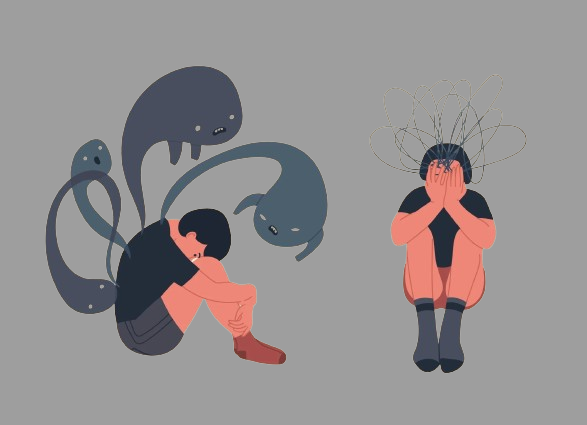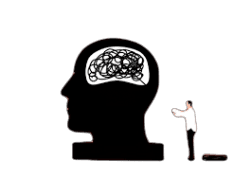Our minds are incredibly powerful, capable of incredible creativity, problem solving and insight. however, this power can turn against us, leading to pattern of self-torture through negative, obsessive, or distressing thoughts. Whether it`s can ruminating over past mistakes, fearing the future, or being overly critical of oneself, this mental torment can takes a significant toll on one`s emotional well being and overall quality of life .
This article helps to explores effective strategies to break free from these harmful thought pattern and cultivate a healthier, more balanced mindset.
Understanding self-Torturing Thoughts
Before delving into solution, it`s crucial to understand the nature of self-torturing thoughts. These thoughts can manifest in various forms, including :

- Rumination: Constantly replaying past events, focusing on mistakes or missed opportunities.
- Catastrophizing: Imagining the worst possible outcomes in any situation.
- Negative self -talk: Harshly criticizing oneself, often with unrealistic standards.
- Anxiety and worry: Persistently fearing future events or outcomes.
These thoughts can be triggered by stress, trauma, perfectionism, or even certain mental health conditions like depression or anxiety disorders.
Causes of Torturing Thoughts
- Negative self talk
- Past experiences
- Fear and anxiety
- Cognitive distortions
- Mental health condition
- Social and cultural pressure
- Lack of self varec
- Perfectionism
- Low self steam
- History of self blame
- Modeling behavior
- Brain chemistry
Strategies to stop torturing yourself with your thoughts
Mindfulness and Medication
Practicing mindfulness involves staying present and fully engaging with the current moments, without judgment. This can help break the cycle of negative thinking by redirecting your focus away from distressing thoughts. Techniques includes:

- Breathing exercises simple breathing techniques can anchor you to the present moment. focus on the sensation of your breath entering and leaving your body.
- Body scan meditation involves mentally scanning your body from head to toe, paying attention to any sensations you notice without trying to change them.
- Mindful Observation pick an object in your environment and observe it in detail. Notice its color, shape, texture, and any other details.
Cognitive Behavioral Therapy(CBT)
Cognitive behavioral therapy is a highly effective therapeutic approach for managing negative thoughts patterns. It involves identifying and challenging distorted thinking and replacing it with more realistic and balance thoughts key techniques involves
- Cognitive restructuring identify irrational thoughts and challenge them. for example, if you think, ” I always fail,” ask yourself foe evidence and consider alternative perspectives.
- Thoughts record keep a journal to track negative thoughts, identify patterns, and analyze them.
- Behavioral experiment test the validity of your thoughts by conducting small experiments. if you fear failing at task, try it and observe the outcome.
Self – Compassion
Developing a Kinder, more compassionate relationship with yourself can mitigate self-torturing thoughts. Techniques to foster self-compassion includes:

- Self-Compassion meditation guided meditations that focus on treating yourself with the same kindness and understanding you would offer a friend.
- Affirmation replace negative self talk with positive affirmation. for example ”I am not good enough”, try” I am capable and worthy”.
- Journaling write letter to yourself from the perspective of a compassionate friend.
Engage in Physical Activity
Exercises have been shown to reduce anxiety and depression. Physical activity can serves as a distraction from negative thoughts and improve mood through the release of endorphins.
- Regular exercise activities like swimming, running, cycling and yoga.
- Mindful movement such as tai chi or mindful walking, which combine movement with mindfulness.
Limit Exposure to Triggers
Identify and limit your exposure to situations, people or media that trigger negative thoughts. this could include
- Social media detox takes breaks from social media, especially if it causes you to compare yourself to others.
- News consumption limit exposure to distressing news. stay informed but avoid overconsumption.
- Healthy boundaries establish boundaries with individuals who negatively impact your mental state.
Cultivate a Support System
Having a strong support system can provide emotional relief and perspective engage with

- Friend and family share your feelings with trusted individuals who can offer support and advice.
- Support group join groups where you can connect with others experiencing similar struggles.
- Professional help seek therapy or counselling for professional guidance in managing your thoughts.
Hobbies and Interests
Engaging in activities you enjoy can shift your focus away from negative thoughts and provide a sense of accomplishment and joy.
- Creative outlets art, music, writing, or crafting.
- Learning pursue new skills or knowledge in areas of interest.
- volunteering helping others can improve your mood and provide a sense of purpose.
Mindful Consumption
Pay attention to what you consume, both physically and mentally. Ensure a balanced diet, adequate sleep, and mindful media consumption strategies includes

- Healthy diet consume a balanced diet rich in nutrients that support brain health.
- Sleep hygiene maintain a regular sleep schedule and create a restful environment.
- Mindful media choose uplifting and positive content over negative or stressful media.
Set realistic Goals
Setting and achieving goals can build confidence and reduce feelings of helplessness. break larger goals into smaller, manageable steps and celebrate your program.
Conclusion
The journey to stop torturing yourself with your thoughts requires patience, practices, and persistence. By incorporating mindfulness, CBT, self compassion, physical activities, supportive relation in your life can develop healthier thinking patterns and improve your overall mental well being.



